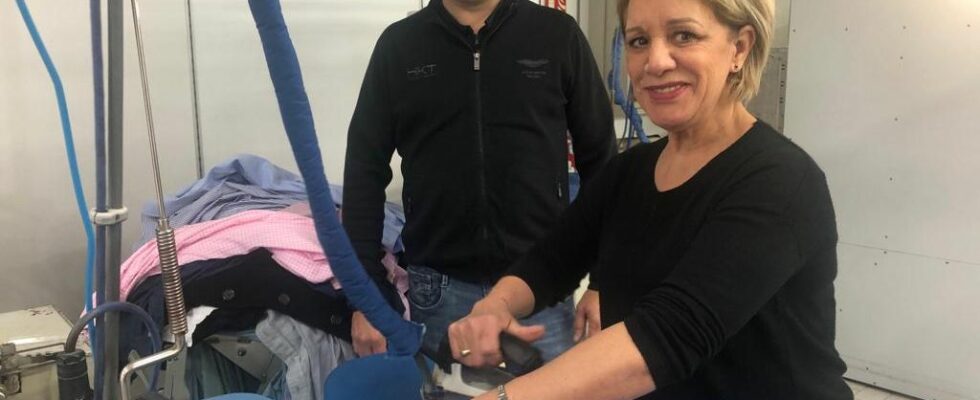In the back room of his Pressing n’co at the Firmis shopping center in Toulouse, Nicolas Dupont does not hide the fact that the atmosphere is not looking good for his profession. And the energy crisis is a bit of a straw that has just overflowed the already well-filled vase. If we talk a lot about bakers, dry cleaners are not left out when it comes to electricity consumption. Between irons, washing machines and dryers, the counter is running at high speed, just like the amount of bills which have only climbed in recent months.
bills and men
“I have four dry cleaners. One at the regulated blue tariff and three at the yellow tariff, the intermediate tariff. For the blue tariff, the increase was 15%, but for the yellow tariff, I went from 10 cents to 22 cents per kilowatt hour [kWh] in November and there, on February 1, we are told 32 cents per kilowatt hour. It’s simple, our overall bill will be multiplied by three,” laments Nicolas Dupont. If we take one of its stores at the tariff, which has an annual consumption of 45,000 kWh, the painful will go from 4,500 euros last year if we apply the tariff of 10 cents, to 14,400 euros in 2023 at the new tariff of 32 pennies.
Especially since these increases come after three years of health crisis which have damaged the turnover of companies in the sector. “We have never regained the turnover of 2019. In addition to the confinement period, with teleworking we have lost 25% of figures, if we manage to make 100 shirts a day today it is extraordinary. Added to this is the 8% increase in the minimum wage but also many products that we use, in particular laundry products and cleaners or even hangers, the cost of which has risen from 19 to 35 euros for 500 copies. A hundred bullets here, a hundred bullets there, while not having found the same level of turnover, that puts us in the hard ”, continues the boss of this TPE of 10 employees. All put together, this resulted last year in an increase of 60,000 euros in its expenses on a turnover of 720,000 euros.
Until now, Nicolas Dupont had braked with both irons to pass on these increases to the prices charged in his shops. “But we will be forced to practice an increase of around 10%, at the very least,” he laments.
Changes to survive
To try to limit breakage, he has procedures in place to run the laundry machines at night, during off-peak hours. To ensure that they are complete when the drums start or to extend the laundry when possible rather than to put it in the dryer which is “a chasm” in terms of energy consumption. “In terms of lighting, we are also moving towards LEDs. But these are bits of candle, ”assures the trader.
State aid or local authorities?
To cope with soaring energy prices, it does not currently benefit from any specific aid. And is waiting to see the realization of those announced by Bruno Le Maire on Friday, who assured that VSE suppliers would not charge more than 280 euros per MWh on average this year. Which will still make a bill of 12,600 euros a year just for one of its stores.
“And then between the time of the announcement and the time it is operational, there are always special cases that arise. During the Covid crisis, when the shopping malls had to close, The Mayor announced that the rents would not be paid. Finally, we were told that our companies had been helped, via partial unemployment, and that we had to pay, ”recalls the one who benefited from a loan guaranteed by the State, which he began to repay.
How does he see himself in January 2024?
And that is one of his worries. Between these monthly payments that he owes to the State and the repercussions of the increases on the workforce, the rents of the four stores and the cost of energy, the horizon is far from clear. “In 2021, what hurt us was the reimbursement of rents. Last year, we were in balance, but with what is happening, we are no longer there. What we reimburse each month to the State for the PGE we miss at the end, ”calculates the Toulouse dyer.
Between the start and the end of the Covid crisis, three of its ten employees left, retired or sick. A payroll stabilized at ten people, but for which it can hardly go below given the hourly amplitude of its stores. So he hopes that the aid will be real. Even if he does not understand “why the aid would not be the same for everyone”.

